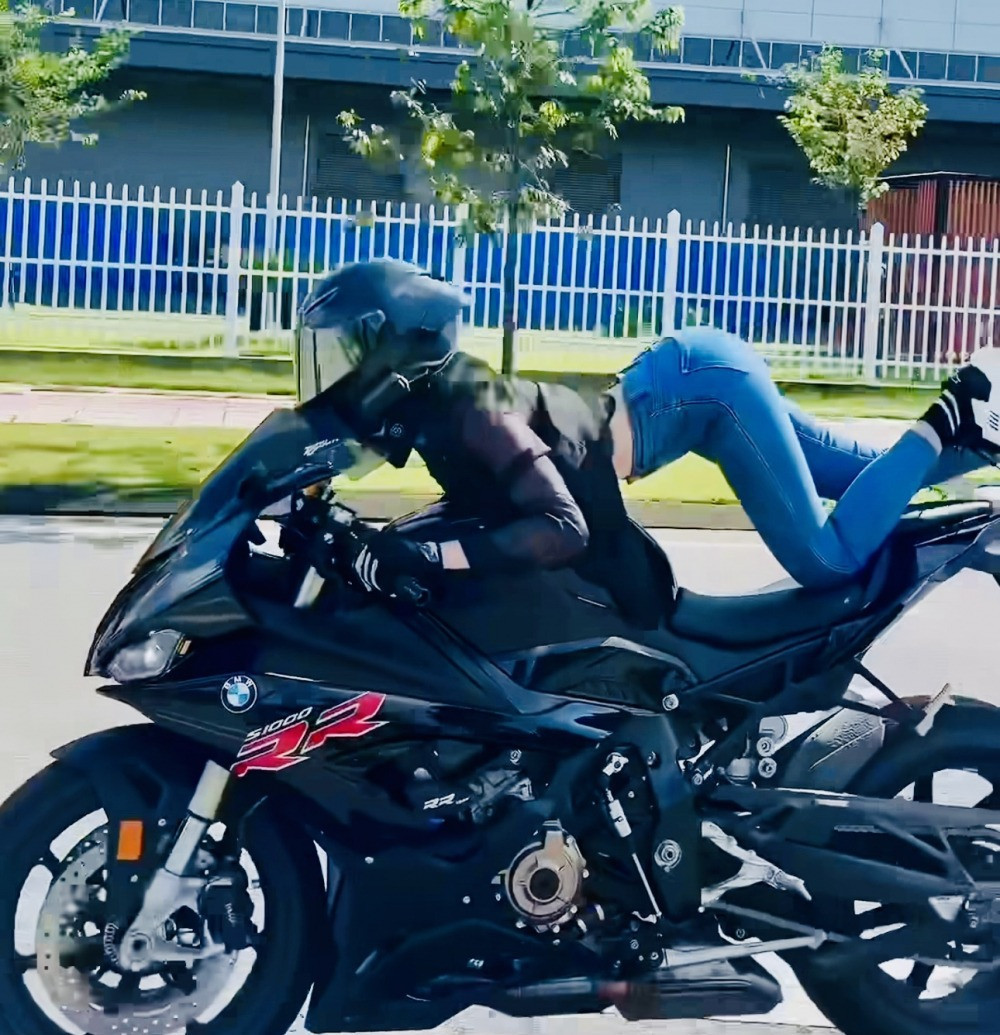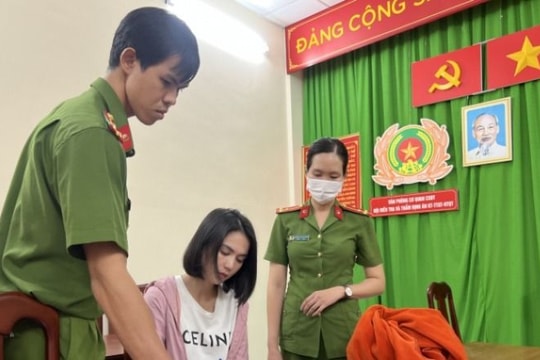Legal basis for the detention of model Ngoc Trinh
Model Ngoc Trinh was prosecuted and temporarily detained to investigate the crime of disturbing public order. The lawyer has analyzed the legal basis for the temporary detention of this model.
As reported, model Ngoc TrinhHo Chi Minh City Police issued a decision to prosecute the accused and execute an order to temporarily detain him to investigate the crime of "Disturbing public order" as prescribed in Article 318 of the Penal Code.
Speaking with VietNamNet, Dr. and lawyer Dang Van Cuong said that perhaps based on the petition of the local government and the assessment of the negative impacts of Ngoc Trinh's traffic violations posted on her social media accounts, the prosecution agency decided to take drastic action against this model.

Image of Ngoc Trinh posing dangerously on a motorbike. Photo: Cut from clip
With the 2015 Penal Code, amended and supplemented in 2017, currently applied, the act of disturbing public order is expanded in a way that allows the prosecution agency to apply criminal sanctions at its discretion, so "serious consequences" are no longer defined by quantitative numbers as in the old law and the previous guidance of the Council of Judges.
As long as the behavior is determined to have a "negative impact on public order and safety", it can be prosecuted criminally. Whether or not the behavior that disturbs public order has a negative impact on public order and safety is a qualitative consequence and is assessed by the prosecuting agency.
The 2015 Penal Code, amended and supplemented in 2017, stipulates the crime of disturbing public order as follows:
1. Anyone who causes public disorder that negatively affects security, order, or social safety, or has been administratively sanctioned for this act or has been convicted of this crime, but has not had his/her criminal record expunged, but still commits the offense, shall be subject to a fine of VND 5,000,000 to VND 50,000,000, non-custodial reform for up to 02 years, or imprisonment of 03 months to 02 years.
2. Committing a crime in one of the following cases shall be punishable by imprisonment from 02 years to 07 years:
a) Organized;
b) Using weapons, dangerous weapons or committing acts of vandalism;
c) Seriously obstructing traffic or causing disruption to public activities;
d) Inciting others to cause trouble;
d) Assaulting people intervening to protect public order;
e) Dangerous recidivism.
The lawyer analyzed that, with the initial information, Ngoc Trinh could be prosecuted under Clause 1, Article 318 of the Penal Code with a penalty of a fine of 5-50 million VND, non-custodial reform for up to 2 years, or imprisonment from 3 months to 2 years.
This is a less serious crime as prescribed in Article 9 of the Penal Code. In case of being convicted of this crime, the maximum penalty is up to 2 years in prison, except in cases where the accused has committed other crimes (if any).
Grounds for detaining Ngoc Trinh
What is noteworthy in this case is that the Investigation Police prosecuted Ngoc Trinh for disturbing public order and applied temporary detention measures against the defendant for investigation.
According to the lawyer, normally for less serious and serious crimes, the investigation agency will not detain, but only apply the measure of prohibiting the defendant from leaving the place of residence after indicting the defendant. Detention will only be applied to defendants prosecuted for less serious and serious crimes if the defendant does not have a clear place of residence, shows signs of absconding, or obstructs the investigation...
Detention and prohibition from leaving the place of residence are measures to prevent the accused from carrying out investigative activities as prescribed by law. If detention is applied, the accused will be detained and isolated from social life during the proceedings.
If the measure of prohibiting leaving the place of residence is applied, the accused can still live and work normally at home, at his place of residence and only be present when requested by the investigation agency.
Dr. Dang Van Cuong said that Article 119 of the 2015 Criminal Procedure Code stipulates that the subjects of temporary detention are suspects and defendants in the following cases:
The accused or defendant commits a very serious crime or an especially serious crime; The accused or defendant commits a serious crime or a less serious crime for which the Penal Code prescribes a prison sentence of more than 2 years and in cases where there is reason to believe that the person may escape or obstruct the investigation, prosecution, trial, or may continue to commit crimes.
For defendants who are pregnant women or are raising children under 36 months old, or are elderly or seriously ill, and have a clear place of residence, they will not be detained but will be subject to other preventive measures.
Only in special cases such as serious crimes, very serious crimes, and especially serious crimes, and there is reason to believe that if not detained, the person may escape or obstruct the investigation, trial, or may continue to commit crimes, will they be detained.
The lawyer said that in the case of Ngoc Trinh being investigated under Clause 2, Article 318 (punishment of over 2 years in prison) and there is evidence that if not detained, the accused may escape or obstruct the investigation, then the investigation agency is justified in detaining the model for investigation according to the law.


